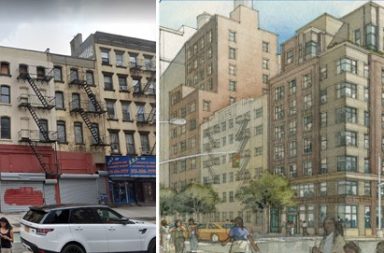OFFICE, residential and retail rents are dropping as the city turns into a tenants’ market. Brokers report many smaller leases continue to move forward, but property sales are stalled as cash-rich investors wait to see how low prices can go.
“Real estate prices will bottom out by the end of 2009, fully stabilize in 2010 and then see double-digit increases for the following year, due to the inflationary pressures from what will be massive federal budget deficits,” predicted Brian Haynes, president of BH Management Corp.
“I don’t think sellers have adjusted their expectations,” said Joshua Zamir, managing principal of Capstone Equities. “We are well capitalized and if there is an opportunity we would look. We are trying to be disciplined.”
On the leasing side, Capstone is in a deal-making mode at 14 Wall Street, which has long term debt and is signing tenants in the mid-$40s per foot, and at 156 William Street, which is being renovated. Capstone can cut deals here in the $30s a foot.
“The credit crisis has not deterred our activity,” said Zamir. “People who need space will have to make decisions, and we will focus on those prospects.”
W&H Properties is also signing leases in both its city and its W&M Properties suburban portfolios. “Tenants and brokers are differentiating a good deal based on sponsorship, and not just on the space,” said president Anthony Malkin.
W&M Properties doesn’t have a lot of leasing availabilities in Manhattan and would like to add to its portfolio.
“It’s a hard thing to accomplish right now,” said Ric Clark, Brookfield’s CEO. “At some point the debt markets will open up, as the new administration is determined to make a difference.”
Brookfield is meanwhile forging ahead with pre-development plans for a large office tower along Ninth Avenue and 30th Street.
Joseph Moinian is continuing with his construction and development of the W New York Downtown Hotel & Residences. While it is not a good time to sell condo apartments, he believes sales will pick up this spring.
“We have Obama coming in as president,” Moinian declared. “We are all waiting for this. And interest rates are dropping very, very low.”
Developer Kent Swig, president of Swig Equities and an owner of Brown Harris Stevens, Halstead and Helmsley-Spear, also believes this will be a transitional year as the tide turns in the late spring.
“We will end up hitting bottom somewhere at the end of the second quarter and begin to level out,” Swig predicted. “It doesn’t mean we will start going up – just that we stop falling.”
Meanwhile, Swig says the “sheer weight” of the problems, including the lack of liquidity, is going to be a burden on the real estate market for next six months. “Without added liquidity, there are no sales, no financings and we hit a wall running at 100 miles an hour.” Added Swig, “We didn’t put the wall there unfortunately.”
Concurred Arnold Penner, of Arnold Penner Real Estate Investments, “How do you go from 100 mph to 5? You don’t adjust that quickly.”
Penner said, “We lived through a time of incredible prosperity, and it’s almost impossible to deal with the fact that things have changed, and really changed.”
Once the country gets back on track, Swig too predicts there will be opportunities.
Swig is seeing ongoing condo activity at the Sheffield 57, and he is also seeing foreigners who want tangible real estate, that can’t be stolen, in a safe country.
This is also a time, Swig said, for brokers to take stock of where they are, where they want to be, and swap shops. “If you have a good company on solid footing, it’s a great time to grow,” Swig said.
The overwhelming problems with the market are also creating a stronger camaraderie among brokers. “People are being kinder and more willing to work together,” observed Georgia J. Malone, of Malone & Co. “The cutthroat competitiveness you used to see isn’t there.”
Her company is having no problem completing deals for less than $30 million, and are also handling note purchases for clients that have cash.
Bruce Mosler, head of global operations for Cushman & Wakefield, says the city will lose more jobs until the office vacancy rate rises to about 11 percent.
More investment sales transactions will take place later this year, he said, as institutions put up assets to sell. “You will see cap rates move up to 6, 7, and 8 percent,” Mosler predicted.
As cap rates had compressed to 4 percent, the higher numbers will provide more return on investments.
“At end of the day, we think that New York will be an investment haven,” said Mosler.
Recalled Moinian, “I came to this country [from Iran] with nothing. No matter what happens, we will survive.”
PARTY PEOPLE
REALTORS let themselves forget the current market for a while this week at an annual NYC shindig hosted by writer Lauren Price. Michael Shvo, of the eponymously named company, flew in from Dubai, Laura Cordovano (right) of Related Companies jetted in from L.A., while Dottie Herman of Prudential Douglas Elliman (left) just braved the cold and came in from midtown Manhattan.









